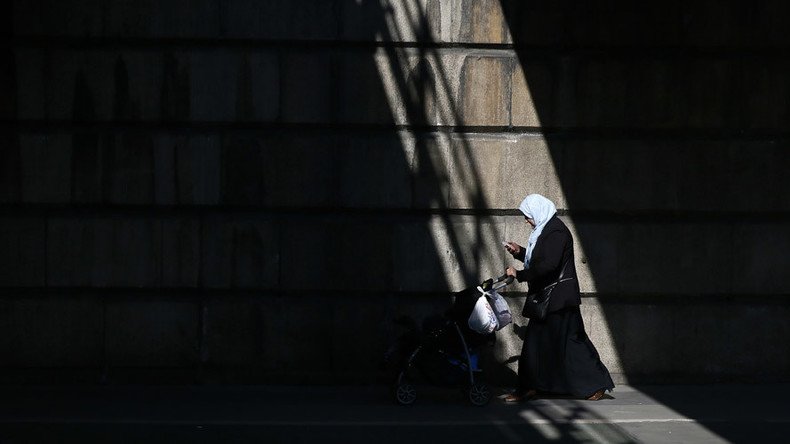Sharia law in UK: family counseling or women abuse?

Should there be Sharia law in the UK? Does Islam treat women as equals and according to demands of UK laws? Or are Sharia courts unfair to women?
British Home Secretary Theresa May Thursday launched a review into Sharia law practices in Britain. The legal system, which is based on the Koran, is used to settle family and financial issues within Muslim communities.
Mohammed Shafiq, chief executive of the Ramadhan Foundation, and Maryam Namazie, human rights activist, discussed the issue of Sharia law practices in Britain.
Mohammed Shafiq said that there are no Sharia courts: “They are Sharia councils, where people on a voluntary basis can go to get advice and get recourse according to Islamic principles.”
He added that every person of any religion is free to do that.
However, Maryam Namazie, human rights activist, said the UK government should reach a position where any type of religious arbitration, when it comes to family matters shouldn’t be allowed. She believes that it is “fundamentally discriminatory against women.”
According to Namazie, there is legal cover for Sharia courts.
“The Sharia councils call themselves courts; those who are presiding over them call themselves judges; the Muslim arbitration tribunals are using the Arbitration act,” she told RT.
Shafiq argues that politicians such as Theresa May and Prime Minister David Cameron have been employing a policy of targeting Muslims. “This is a part of neo-conservative agenda,” he says.
He believes this rhetoric comes in a climate of Islamophobia and anti-Muslim hatred, which is perpetuated by the politicians, people in media, and other commentators. Shafiq says they demonize Muslims and their way of life.
“Sharia law is not about chopping of hands and other barbaric things that we may see around the world,” he told RT. “Sharia law is about how we engage with our neighbors; how we live with people side by side; how we treat members of the wider community,” Shafiq continues.
Namazie denies that the recent inquiry is an attack against the Muslim community. “It is a defense of Muslims and particularly Muslim women,” she said.
“Sharia courts and Sharia law in the family is highly contested. We’re not even talking about Hudood Ordinances, which are the amputations and stoning, but the civil aspects of the law, the family aspect of the law,” Namazie told RT.
Sharia Law Review: UK investigates whether women suffer from Islamic legal system https://t.co/tn8eRNVoLB
— RT (@RT_com) 28 мая 2016 г.
The human rights activist argues that it is highly discriminatory and contested in many countries where these laws exist.
“It’s got nothing to do with Islamophobia or hatred against Muslims. I think it is important to see it as a women’s rights issue,” she concluded.
The statements, views and opinions expressed in this column are solely those of the author and do not necessarily represent those of RT.













